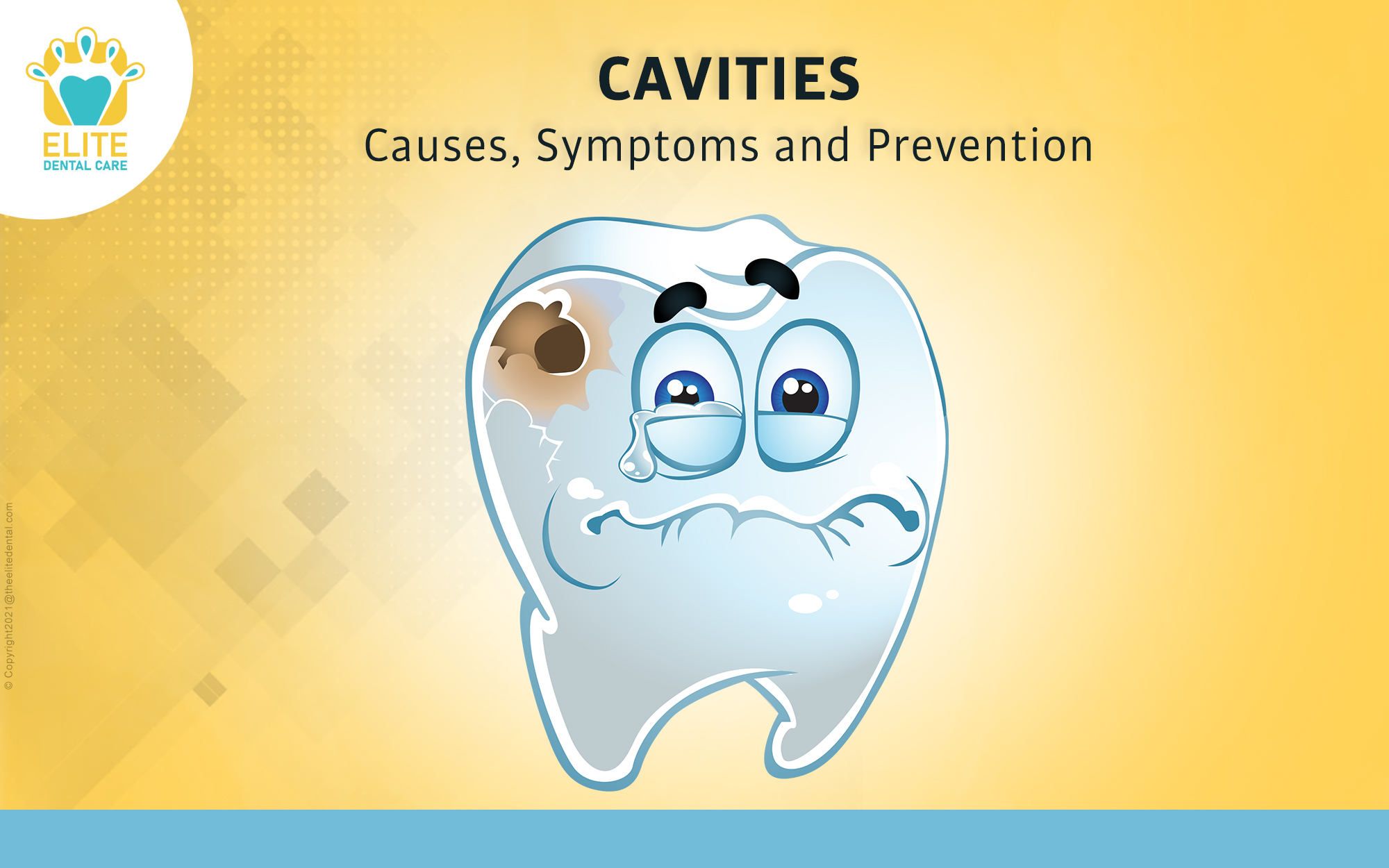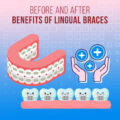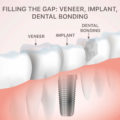
dental caredenturesflossingoral healthRoot Canal TreatmentTeeth WhiteningTooth Extraction
edental
27 July 2022
Cavities: Causes, Symptoms and Prevention
A cavity is a hole that develops in anyone’s tooth, commonly known as tooth decay. Cavities start minor and get larger over time if individuals cannot take care of them on time. It may be challenging to recognize a problem because many holes do not initially hurt. An individual can detect early tooth decay with routine dental visits.
It is the most common disease that can impact any age or group, whether babies or older people. Also, it is easily preventable, according to experts.
What is a cavity?
It is a condition in which permanent damage is caused to the hard surfaces of your teeth, and tiny openings develop in those areas. Every cavity that is diagnosed isn’t always a hole in your tooth, but the term “cavity” is used loosely by dentists to describe what is going on inside your mouth. Tooth decay and dental caries are caused by bacteria buildup, sugary drinks and snacks throughout the day, poor dental hygiene, and not regularly brushing your teeth/mouth.
What signs indicate a tooth cavity?
Symptoms of cavities begin to appear as tooth decay advances. The easier the therapy may be, the sooner these indicators are discovered. Here are some signs of a cavity to watch out for:
- Increases toothache and sensitivity
- When you eat your food, it is either hot, cold or sweet.
- Teeth with brown and white stains
- Unpleasant mouth taste and bad breath
So, these are the central systems of tooth decay. If any individual faces this symptom, they must go to the dentist.
What are the main reasons behind tooth decay?
- High sugar intake
Regularly consuming sugary foods and beverages, such as soda with added sugar, energy drinks, and artificially sweetened juices exposes teeth to the effects of sugar and acids and leads to tooth decay. Focus on eating whole grains, fresh fruits, and vegetables in your diet to keep your teeth healthy. If you eat more than once a day, you must rinse your mouth after consuming them.
- Lack of oral hygiene
Poor dental hygiene is the most prevalent cause of cavities and tooth decay. Plaque is a thin, sticky layer that can accumulate if dental hygiene is not adequately maintained. To fight bacteria and avoid cavities, you must practice a 3-step oral hygiene regimen of brushing, flossing, and mouthwash rinsing.
- Dry Mouth
A dry mouth with less saliva creates the ideal environment for quick plaque buildup, leading to cavities. Saliva naturally cleans teeth by removing food and plaque. Try chewing sugar-free gum, drinking lots of water, and cutting back on coffee to help dry your mouth.
What is the complication of tooth cavities?
If you have tooth cavities, you will face plenty of complications if you have not treated them on time. You must be willing to know the difficulties you face over time.
- Chronic toothache
- When infected, tooth abscesses can lead to sepsis or other potentially fatal problems such as an infection that enters the bloodstream.
- An increased risk of tooth breakage or chipping occurs when pus forms around the affected tooth.
- You will face difficulties when consuming food.
Cavity Prevention: With Oral Hygiene Routine
Practicing good oral hygiene can prevent cavities with some essential steps:
- After having a meal or beverage, brush your teeth with fluoride toothpaste. As per dentists, every person must brush their teeth twice daily. Use floss or an interdental cleaner to clean in between your teeth.
- Rinse your mouth with water. Your dentist could recommend a fluoride-containing mouthwash if you are at high risk of tooth cavities.
- Have monthly appointments with your dentist. It will prevent your tooth decay problems.
- Examine dental treatments. A sealant is a protective plastic covering the chewing surface of the back teeth. Keeping food out of crevices protects enamel from acid and plaque. The CDC recommends sealants for children of school age. A sealant may not require renewal for several years, but you must examine it frequently.
- Add some tap water. Many public water systems have added fluoride to reduce tooth decay. Fluoride-free bottled water will not give you any fluoride benefits.
So, this is all about the tooth cavities problem; you must visit the dentist and follow their instructions strictly so that you will not face any serious dental issues. As usual, good health takes care of your mouth and leads you to a healthy life.




